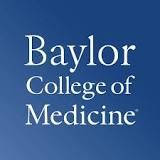2
Clinical Trials associated with Multi-virus Specific T cells(Baylor College of Medicine) / CompletedNot Applicable Administration of Most Closely HLA-matched Multivirus-specific Cytotoxic T-Lymphocytes for the Treatment of EBV, CMV, Adenovirus, HHV6, and BK Virus Infections Post Allogeneic Stem Cell Transplant
Patients enrolled on this study will have received a stem cell transplant. After a transplant, while the immune system grows back the patient is at risk for infection. Some viruses can stay in the body for life and if the immune system is weakened, like after a transplant, they can cause life threatening infections.
Patients enrolled on this study will have had an infection with one or more of the following viruses - Epstein Barr virus (EBV), cytomegalovirus (CMV), BK virus, JC virus, adenovirus or HHV6 (Human Herpes Virus 6).
Investigators want to see if they can use a kind of white blood cell called T cells to treat infections of these viruses after a transplant. Investigators have observed in other studies that treatment with specially trained T cells has been successful when the cells are made from the transplant donor. However as it takes 1-2 months to make the cells, that approach is not practical when a patient already has an infection.
Investigators have now generated multivirus-specific T cells (VSTs) from the blood of healthy donors and created a bank of these cells. Investigators have previously successfully used frozen multivirus-specific T cells from healthy donors to treat virus infections after bone marrow transplant and now have improved the production method to make it safer and target more viruses.
In this study, investigators want to find out if they can use these banked VSTs to fight infections caused by the viruses mentioned above.
Administration of Rapidly Generated Multivirus-specific Cytotoxic T-Lymphocytes for the Prophylaxis and Treatment of EBV, CMV, and Adenovirus Infection Post Allogeneic Stem Cell Transplant (VIRAGE)
Patient's on this protocol have a type of blood cell cancer, other blood disease or a genetic disease and have received a stem cell transplant. The donor of the stem cells was either a brother or sister, another relative, or a closely matched unrelated donor. The patient is being asked to participate in this study which tests if blood cells from the donor that have been grown in a special way, can prevent or be an effective treatment for early infection by three viruses - Epstein Barr virus (EBV), cytomegalovirus (CMV) and adenovirus.
Adenovirus is a virus that usually causes symptoms of a common cold, but can cause serious life-threatening infections in patients who have weak immune systems. It can affect the lungs and cause very serious pneumonia, and can also damage the gut, liver, pancreas and eyes.CMV can also cause serious infections in patients with weak or suppressed immune systems. It usually affects the lungs, causing a very serious pneumonia, but it can also affect the gut, the liver and the eyes. Approximately 2/3 of normal people harbor this virus in their body. In healthy people CMV rarely causes any problems because the immune system can keep it under control, but after a transplant, the risk of developing CMV disease is much higher because the immune system is so weak. EBV is the virus that causes glandular fever. It is also a life long infection like CMV that is normally controlled by the immune system. When immunity is weak, the virus can become active and cause fevers, enlarged lymph nodes and sometimes a type of cancer called lymphoma.
Investigators want to see if a kind of white blood cell called T lymphocytes (T cells)can be used to prevent and treat adenovirus, CMV and EBV in the early stages of reactivation or infection. T cells have been grown from the patient's stem cell donor in the laboratory in a way that will train them to recognize the virus and control it when they are given after a transplant. This treatment with specially trained T cells (also called CTLs) has had activity against these viruses in previous studies and in this study investigators want to see if they still have activity when they are made in a simpler and faster way. These donor-derived multivirus-specific special cell lines are an investigational product not approved by the Food and Drug Administration.
The purpose of this study is to evaluate whether donor-derived multivirus-specific special cell lines are safe and can control three viruses: EBV, CMV and adenovirus.
100 Clinical Results associated with Multi-virus Specific T cells(Baylor College of Medicine)
100 Translational Medicine associated with Multi-virus Specific T cells(Baylor College of Medicine)
100 Patents (Medical) associated with Multi-virus Specific T cells(Baylor College of Medicine)
100 Deals associated with Multi-virus Specific T cells(Baylor College of Medicine)







